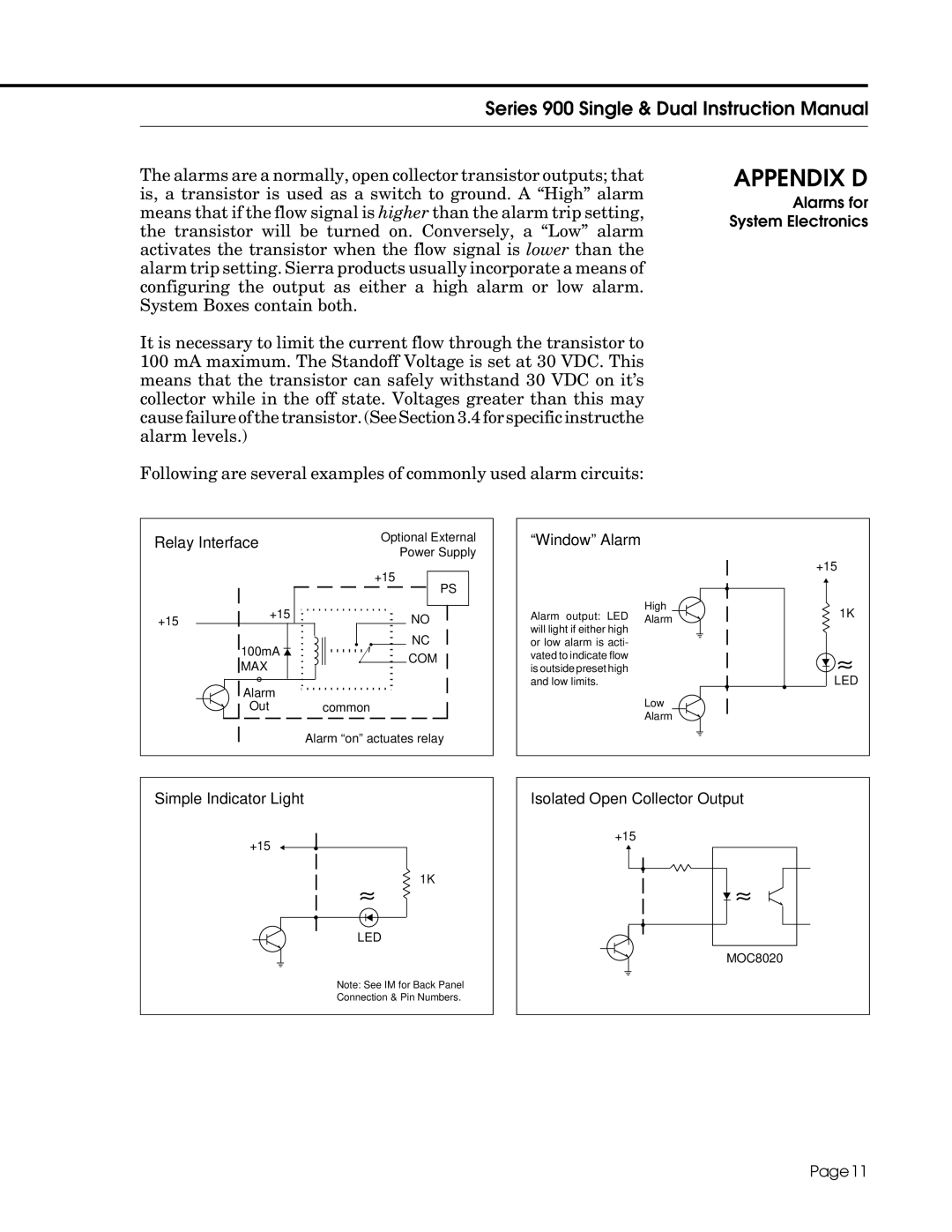
Series 900 Single & Dual Instruction Manual
The alarms are a normally, open collector transistor outputs; that is, a transistor is used as a switch to ground. A “High” alarm means that if the flow signal is higher than the alarm trip setting, the transistor will be turned on. Conversely, a “Low” alarm activates the transistor when the flow signal is lower than the alarm trip setting. Sierra products usually incorporate a means of configuring the output as either a high alarm or low alarm. System Boxes contain both.
It is necessary to limit the current flow through the transistor to 100 mA maximum. The Standoff Voltage is set at 30 VDC. This means that the transistor can safely withstand 30 VDC on it’s collector while in the off state. Voltages greater than this may cause failure of the transistor. (See Section 3.4 for specific instructhe alarm levels.)
Following are several examples of commonly used alarm circuits:
APPENDIX D
Alarms for System Electronics
Relay Interface |
|
| Optional External | |
|
|
|
| Power Supply |
|
|
|
| +15 |
|
|
|
| PS |
+15 | +15 |
| NO | |
|
|
| ||
| 100mA | • | • | NC |
| ▲ |
| COM | |
| MAX |
|
| |
|
|
|
| |
| ° |
|
|
|
| Alarm |
|
|
|
| Out |
|
|
|
|
| Alarm “on” actuates relay | ||
“Window” Alarm
High
Alarm output: LED Alarm will light if either high
or low alarm is acti- vated to indicate flow is outside preset high and low limits.
Low
Alarm
+15
▼ •
1K
|
| ▲ | ≈ |
• | • |
| LED |
|
|
Simple Indicator Light
+15 | ▼ | • |
≈ 1K
• | ▲ |
LED
Note: See IM for Back Panel
Connection & Pin Numbers.
Isolated Open Collector Output
+15 |
▼ |
• |
▲ |
≈ |
• |
MOC8020 |
Page 11
